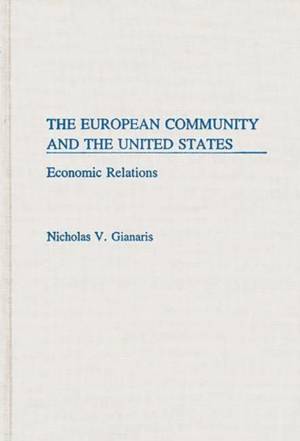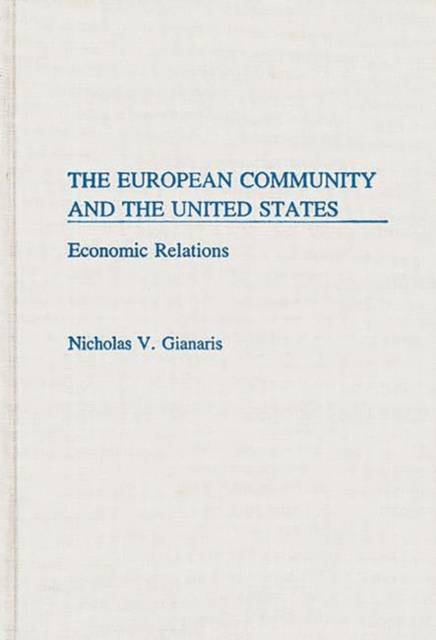
- Retrait gratuit dans votre magasin Club
- 7.000.000 titres dans notre catalogue
- Payer en toute sécurité
- Toujours un magasin près de chez vous
- Retrait gratuit dans votre magasin Club
- 7.000.0000 titres dans notre catalogue
- Payer en toute sécurité
- Toujours un magasin près de chez vous
Description
In this timely volume, Nicholas Gianaris examines trade and investment relations and related economic policies as they affect development trends in Europe and the United States. Particular emphasis is placed on the potential effects on the historical ties between the United States and Europe of such developments as the integration of Western Europe in 1992, the rapid opening of Eastern Europe, German reunification, and the potential for stronger economic cooperation in North America. Gianaris examines the impact of these issues on a wide range of economic matters including the relationship between the private and public sectors, the openness of markets, the degree of industrialization, fiscal and monetary policy, business regulation and taxation, joint ventures, and mergers and acquisitions.
Following an introductory overview, Gianaris reviews historical trends in the economic relations between the European Community and the United States, especially the intensive postwar efforts at European integration which followed, to some extent, the successful example of the United States. The next two chapters address the similarities in economic organizations and related fiscal and monetary policies as they affect trade and other financial transactions between the European Community and the United States. Gianaris goes on to examine in more detail trade and investment relations, including such issues as capital flows and currency realignment, as well as the growing phenomena of transatlantic joint ventures and acquisitions. The final chapter assesses relations with the dramatically changing Eastern European countries and the expected results of the unification of Germany. Students and scholars in international trade and finance will find this analysis of current and potential future economic relations between the United States and the European Community enlightening reading.Spécifications
Parties prenantes
- Auteur(s) :
- Editeur:
Contenu
- Nombre de pages :
- 256
- Langue:
- Anglais
- Collection :
Caractéristiques
- EAN:
- 9780275934811
- Date de parution :
- 30-01-91
- Format:
- Livre relié
- Format numérique:
- Genaaid
- Dimensions :
- 156 mm x 234 mm
- Poids :
- 530 g

Les avis
Nous publions uniquement les avis qui respectent les conditions requises. Consultez nos conditions pour les avis.






